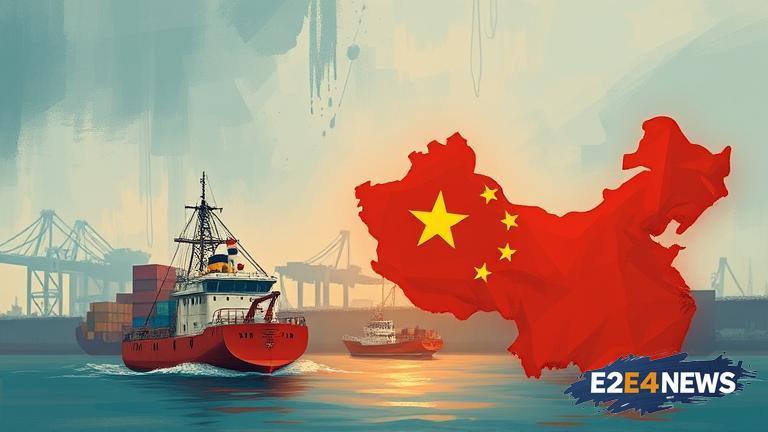China is facing increasing pressure from the US in terms of trade, with analysts warning that the country must adopt a long-term strategy to navigate these tensions. The US has been accused of being a ‘big bully’ in its trade dealings with China, using its economic might to exert pressure on the country. Despite this, China remains committed to its trade partnerships and is seeking to strengthen its relationships with other countries. The ongoing trade tensions between the US and China have significant implications for the global economy, with many countries watching the situation closely. China’s trade partners are being forced to take sides, with some opting to maintain their relationships with the US while others are strengthening their ties with China. The US has imposed significant tariffs on Chinese goods, leading to a decline in Chinese exports to the country. In response, China has imposed its own tariffs on US goods, leading to a decline in US exports to China. The trade tensions between the two countries have also had a significant impact on other countries, with many experiencing declines in their own exports. Analysts warn that the trade tensions could have long-term consequences for the global economy, including a decline in economic growth and an increase in unemployment. China is seeking to mitigate the impact of the trade tensions by strengthening its relationships with other countries, including those in the EU and ASEAN. The country is also seeking to increase its domestic consumption, reducing its reliance on exports. Despite the challenges posed by the trade tensions, China remains committed to its economic development goals, including its plans to become a high-income country by 2025. The country is also seeking to increase its investment in emerging technologies, including artificial intelligence and renewable energy. The trade tensions between the US and China have significant implications for the future of global trade, with many countries seeking to establish new trade partnerships and agreements. China’s ability to navigate these tensions will be crucial in determining the future of the global economy. The country’s long-term strategy will require careful planning and negotiation, as it seeks to balance its relationships with the US and other countries. Ultimately, the outcome of the trade tensions will depend on the ability of China and the US to find a mutually beneficial solution, one that promotes economic growth and cooperation between the two countries.
